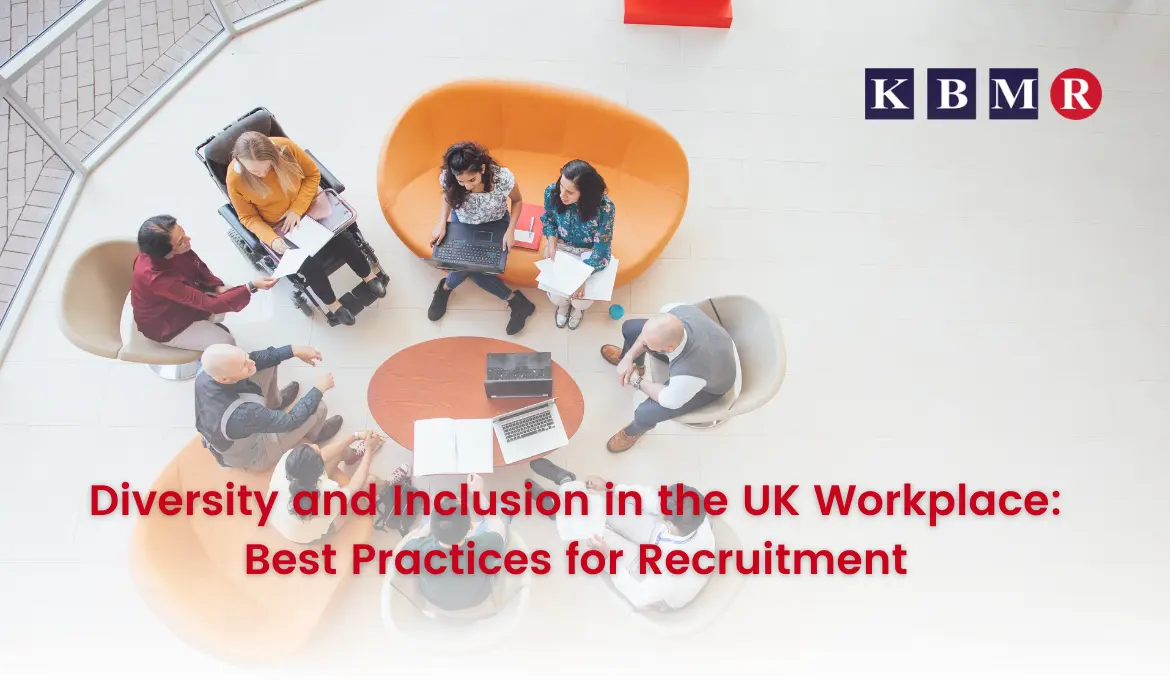Diversity and inclusion have become crucial aspects of a thriving workplace culture in today's globalised and interconnected world. Embracing diversity fosters innovation and creativity and ensures a broader range of perspectives and experiences, ultimately leading to improved decision-making and business performance.
In this blog, we'll explore some of the best recruitment practices that promote diversity and inclusion in the UK workplace.
1. Creating Inclusive Job Descriptions
One of the first steps towards building a diverse workforce is to ensure that job descriptions are inclusive and free from bias. Avoid using gendered language or terms that may inadvertently exclude certain groups. Instead, focus on outlining the essential skills and qualifications required for the role while emphasising the company's commitment to diversity and inclusion.
2. Implementing Blind Recruitment Processes
Blind recruitment involves removing identifying information such as name, gender, age, and educational background from job applications to prevent unconscious bias during the initial screening process. By focusing solely on candidates' skills, qualifications, and experience, blind recruitment promotes fairness and equal opportunities for all applicants, regardless of their background or personal characteristics.
3. Partnering with Diverse Recruitment Agencies
Collaborating with recruitment agencies specialising in sourcing diverse talent can significantly broaden the pool of candidates and enhance the inclusivity of the hiring process. These agencies often have access to networks and communities that are underrepresented in traditional recruitment channels, helping organisations reach a more diverse range of candidates.
4. Implementing Diversity Training for Hiring Managers
Offering diversity training for hiring managers is crucial to ensure they grasp the significance of diversity and inclusion and possess the tools to reduce bias during recruitment. These training sessions may address awareness of unconscious bias, using inclusive language, and employing interview techniques that foster diversity and fairness.
5. Establishing Employee Resource Groups
Employee Resource Groups (ERGs) are voluntary, employee-led groups that offer a space for employees from various backgrounds to come together, share their experiences, and promote inclusivity in the workplace. Encouraging the establishment of ERGs and backing their initiatives illustrates a dedication to nurturing a diverse and inclusive workplace culture.
Such groups foster camaraderie and understanding among employees, ultimately contributing to a more supportive and welcoming work environment.
6. Conducting Regular Diversity Audits
Regularly assessing recruitment practices and outcomes via diversity audits enables organisations to pinpoint areas for enhancement and monitor advancements towards diversity and inclusion objectives. These audits should analyse critical metrics such as candidate demographics, hiring rates, and employee retention to assess the effectiveness of diversity initiatives and inform future strategies.
Conclusion
Integrating diversity and inclusion into recruitment is essential for organisations in today's competitive business environment. Embracing diversity widens the talent pool, fosters innovation, and meets the needs of diverse customers. Promoting inclusion boosts employee engagement and productivity while strengthening the employer brand.
By adopting inclusive job descriptions, blind recruitment, diverse recruitment agencies, and hiring manager training, organisations attract, retain, and empower a diverse workforce, driving innovation and delivering sustainable success in the UK workplace.





